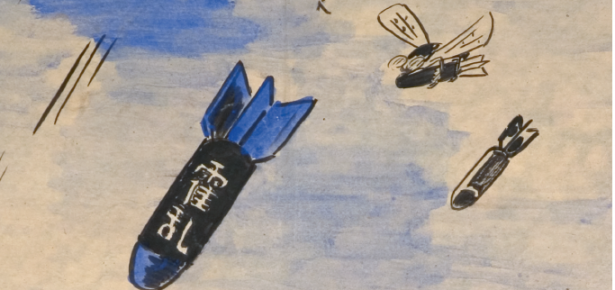
One of the questions I get asked most frequently is why I write about the history of epidemic disease. Why focus on an aspect of human existence that can appear so bleak?
It’s true that studying epidemics inevitably means grappling with loss and confronting the pain and suffering of others. The material is sometimes disturbing, often disheartening. But it is also immensely rewarding and, I think, crucially important.
Aside from the obvious point that history can’t be divided into sunlit uplands and dark lowlands, the first thing to say is: what could be more important? Over the last six years that I have been teaching a course on the history of epidemics at the University of Hong Kong there has been a constant stream of global outbreaks: from Swine flu (H1N1) in 2009 to Middle East respiratory syndrome in 2012, avian influenza (H7N9) in 2013, Ebola in 2014 and the ongoing Zika epidemic that has threatened to disrupt the 2016 Summer Olympic Games in Rio de Janeiro.
The second point to make is that investigating past epidemics involves much more that considering the nature of pathogenic threats, symptoms or mortality statistics. In my recent book, Epidemics in Modern Asia, I show how epidemics are produced as a result of entangled biological, social, political and economic processes. I argue that studying epidemics can illuminate critical issues in history: migration, urbanization, environmental transformation, conflict, and globalization. Epidemics produce change, just as change provides new opportunities for diseases to take hold and spread. This is a far more encompassing vision of epidemic history than the one implied by the question ‘why study disease?’ Rather than ring-fencing ‘epidemic history’ as a discrete subfield, I’m interested in reintegrating epidemics into mainstream social, political and economic accounts of the past.
Like most historians, I came to my topic at least in part out of exasperation. I couldn’t find the history books I felt ought to be written. Despite a growing scholarship on the history of disease since the 1960s and 1970s, what was striking was the extent to which disease episodes were glossed over in authoritative works. Pages were devoted to dynastic feuds or economic developments but disease was relegated to a backdrop and frequently left out altogether.
As a junior research fellow at St. Catharine’s College, Cambridge, I had focused on the post-Ottoman world, exploring how territories were appropriated by the newly forged nation-states that were carved out of the Empire during the nineteenth and twentieth centuries. Health preoccupations – and in particular attempts to prevent the spread of epidemics – featured prominently in the archives. They were invariably connected to a host of broader concerns about the management of migration, trade, environmental change, and war. It became clear that disease was interlinked in complex ways with political ecologies. Could studying disease history open up new perspectives on key historical questions about the operations of political power, the limits of state sovereignty, and the unevenness of imperial space?
The Ottoman Empire was a vast transcontinental polity that at its apogee encompassed swathes of North Africa, the Middle East, and Southeast Europe, controlling trade routes between Europe and Asia. Further research suggested the degree to which infectious diseases were implicated in imperial Ottoman networks, with Mecca as one nodal point. Here, I ran into a rich body of scholarship that approached the theme from a different direction. Work by historians of South and Southeast Asia pointed to the interconnections between Eastern Mediterranean and Indian Ocean worlds.
The axis of my research shifted east but to a large extent the problems that it addressed remained the same, pivoting around imperial circulations, the dynamics of state institutions, and cross-cultural exchanges – with disease and medicine remaining two central concerns. These are certainly important themes in Epidemics in Modern Asia, a book that I wrote as a way of rethinking Asia’s connected history. While there is a growing scholarship on regional and country-specific histories of disease and medicine in Asia, what is often lost are the interconnections – the movements between and across disparate spaces.
This is, I think, another answer to the question ‘why study disease?’ Exploring disease compels us to think in radical ways about interrelations. The kind of epidemic history I have been describing is inevitably a connected history. And one of the most rewarding and challenging aspects of writing a connected history is the pressure it inevitably puts on definitions of ‘history’. For example, in the midst of a pandemic that decimates millions, we come across the moving testimony of an individual plague victim. How should we accommodate such divergent scales of historical experience? The intimately personal and local, on the one hand, versus an abstract agglomeration, on the other. How, too, can the colonial past help to elucidate the post-colonial present? These are not easy questions to answer but they are important to address, not least because history is so frequently invoked as a rationale for action in the present.
Underlying the arguments in Epidemics in Modern Asia is a conviction that history can shed light on historical continuities and discontinues. This is not a claim that history furnishes readily usable lessons for the present and prepares us for the future. But it is a call for the inclusion of history – as archive and methodology – in grappling with some of the biggest challenges that face us in the twenty-first century, including the emergence and reemergence of infectious diseases with pandemic potential.
Latest Comments
Have your say!